NEWS & EVENTS
- Home
- News
- Products Information
- Does limestone powder dissolve in water?
Does limestone powder dissolve in water?
August 13,2025
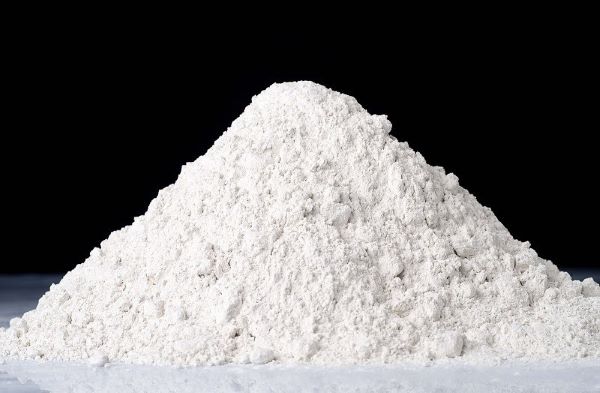
“Does limestone powder dissolve in water?” is a question many people are interested in when learning about the properties and applications of this material. Composed mainly of calcium carbonate (CaCO₃), limestone powder is widely used in various fields such as construction, water treatment, paint production, medicine, and ceramics. However, its solubility in water is not straightforward and depends on environmental conditions. To better understand this characteristic, let’s explore the details in the article below.
Limestone powder exhibits the typical properties of carbonate salts. When it reacts with water containing dissolved CO₂, it forms calcium bicarbonate, a water-soluble compound, which leads to the phenomenon of hard water.
This reaction is also the cause of limestone mountain erosion, the formation of natural caves, and the widespread occurrence of hard water not only in Vietnam but also in many other parts of the world.
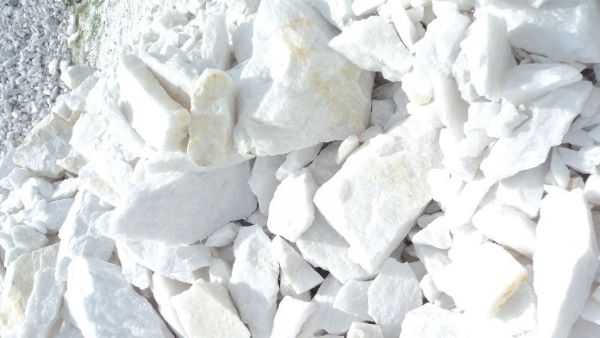
Limestone powder does not dissolve in ordinary water, but it dissolves easily in water containing CO₂
CaCO₃ + CO₂ + H₂O → Ca(HCO₃)₂
This reaction explains why CaCO₃ can dissolve in conditions where water contains a high level of CO₂, and it is also the cause of temporary hard water, a characteristic feature of carbonate salts.
In addition, when limestone comes into contact with strong acids such as HCl, a reaction occurs releasing CO₂ gas:
CaCO₃ + 2HCl → CaCl₂ + CO₂↑ + H₂O
Through these reactions, it can be confirmed that calcium carbonate does not dissolve in pure water, but it does dissolve in water containing CO₂ or in acidic environments. This is the primary mechanism behind limestone weathering and the formation of natural limestone caves.
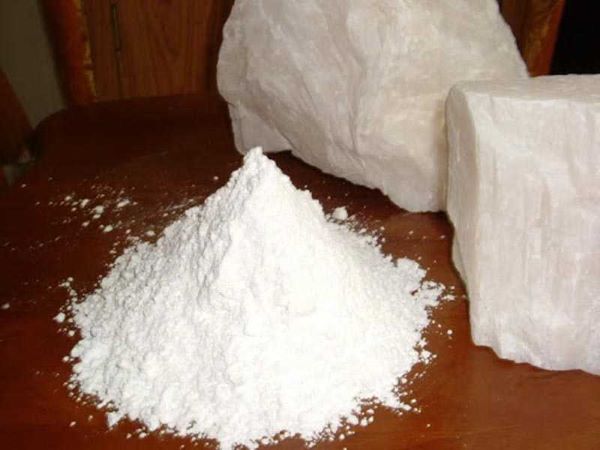
Limestone powder can dissolve in certain cases
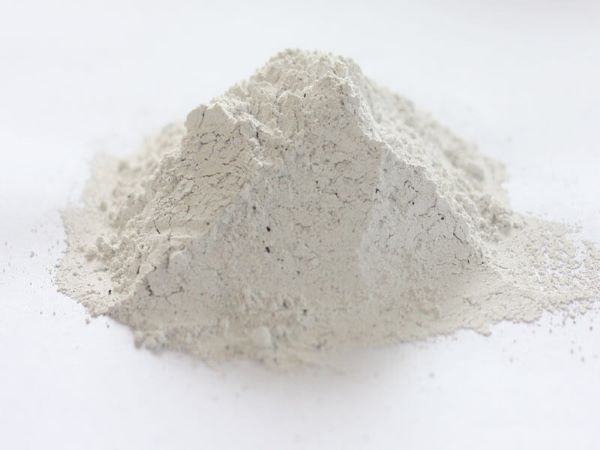
Is water containing limestone (CaCO₃) toxic or not
Does limestone powder dissolve in water?
Limestone powder does not dissolve in ordinary water or pure water, but it can dissolve in water containing CO₂.Limestone powder exhibits the typical properties of carbonate salts. When it reacts with water containing dissolved CO₂, it forms calcium bicarbonate, a water-soluble compound, which leads to the phenomenon of hard water.
This reaction is also the cause of limestone mountain erosion, the formation of natural caves, and the widespread occurrence of hard water not only in Vietnam but also in many other parts of the world.

Limestone powder does not dissolve in ordinary water, but it dissolves easily in water containing CO₂
In what cases can limestone powder dissolve?
In water containing dissolved CO₂, CaCO₃ can react and transform into a water-soluble bicarbonate salt – calcium bicarbonate [Ca(HCO₃)₂], according to the reaction:CaCO₃ + CO₂ + H₂O → Ca(HCO₃)₂
This reaction explains why CaCO₃ can dissolve in conditions where water contains a high level of CO₂, and it is also the cause of temporary hard water, a characteristic feature of carbonate salts.
In addition, when limestone comes into contact with strong acids such as HCl, a reaction occurs releasing CO₂ gas:
CaCO₃ + 2HCl → CaCl₂ + CO₂↑ + H₂O
Through these reactions, it can be confirmed that calcium carbonate does not dissolve in pure water, but it does dissolve in water containing CO₂ or in acidic environments. This is the primary mechanism behind limestone weathering and the formation of natural limestone caves.

Limestone powder can dissolve in certain cases
Is water containing limestone (CaCO₃) toxic?
Water contaminated with limestone is commonly known as hard water, which contains high levels of calcium (Ca²⁺) and magnesium (Mg²⁺) ions. In domestic water, minerals such as calcium, phosphorus, iron, and magnesium are always present at certain levels. However, when the concentrations of calcium and magnesium exceed the permissible limits, they can cause various negative effects. According to the Ministry of Health’s standards, clean water must not exceed a hardness level of 300 mg/L.
Is water containing limestone (CaCO₃) toxic or not
Currently, the situation of water contaminated with limestone is on the rise, especially common in groundwater from drilled wells. A clear sign is the white residue accumulating at the bottom of kettles, cooking pots, or scaling on devices such as showerheads and water pipes after a period of use.
Hard water not only affects daily life but also harms health. In household use, it causes kitchen and bathroom appliances to become stained with deposits, lose aesthetics, and have a reduced lifespan. Water pipes may become clogged due to long-term scaling.
In terms of health, long-term use of hard water can lead to skin conditions such as dermatitis, fungal infections, itching, and rashes. Hair also becomes dry, brittle, and prone to breakage. More seriously, hard water can put pressure on the kidneys, increasing the risk of kidney stones and other severe health issues if consumed for a long time.
Therefore, water containing high levels of calcium and magnesium can be harmful and should not be used for daily living. It is important to check and treat your water source to ensure the safety of you and your family.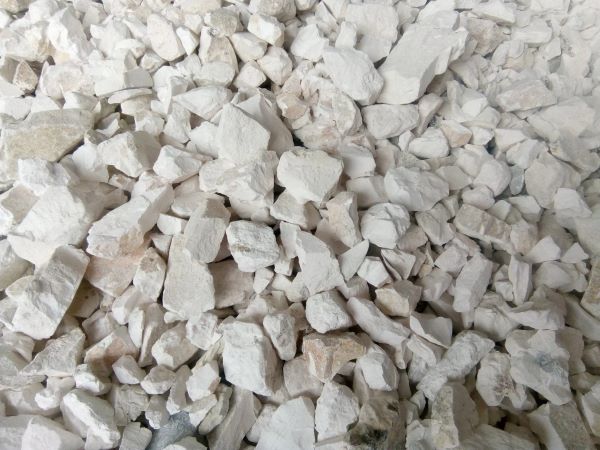
Some applications based on the insoluble property of limestone powder
Hard water not only affects daily life but also harms health. In household use, it causes kitchen and bathroom appliances to become stained with deposits, lose aesthetics, and have a reduced lifespan. Water pipes may become clogged due to long-term scaling.
In terms of health, long-term use of hard water can lead to skin conditions such as dermatitis, fungal infections, itching, and rashes. Hair also becomes dry, brittle, and prone to breakage. More seriously, hard water can put pressure on the kidneys, increasing the risk of kidney stones and other severe health issues if consumed for a long time.
Therefore, water containing high levels of calcium and magnesium can be harmful and should not be used for daily living. It is important to check and treat your water source to ensure the safety of you and your family.
Applications based on the insoluble property of limestone powder
Limestone (CaCO₃) is one of the raw materials widely used in production and daily life thanks to its abundant supply and reasonable cost. Below are some typical applications of ultrafine limestone that you may find interesting:
Some applications based on the insoluble property of limestone powder
Applications in the paint industry
Calcium carbonate is the main filler in the coatings industry, especially in water-based paints. The particle size and fineness of CaCO₃ directly affect the whiteness, coverage, and smoothness of the paint film. In addition to improving coverage and gloss, CaCO₃ also increases paint volume at a low cost, accounting for up to 60% of the content in some product lines.
Enhancing corrosion resistance
CaCO₃ has low oil absorption and good dispersibility, helping to improve stability and durability of materials in harsh environments. Its stable pH and natural anti-corrosion properties extend the lifespan of many types of products across different industries.
Water treatment and improvement
In aquaculture and water treatment, CaCO₃ is used to absorb harmful gases such as NH₃, H₂S, CO₂… as well as neutralize acidity in water. In addition, it helps reduce heavy metal content, decompose dead algae, stabilize pH and water color, thereby improving the aquatic environment and limiting the growth of pathogenic bacteria.
Applications in medicine
In the pharmaceutical field, limestone is used as a low-cost calcium supplement and an antacid. Furthermore, CaCO₃ serves as an excipient and base material in tablet production, helping shape and stabilize medicines.
Whitening ceramics and making chalk
CaCO₃ is the main component in the whitening process of ceramics, giving products brightness and durability. It is also a traditional raw material for making chalk, alongside other substances such as gypsum (CaSO₄·2H₂O).
It can be seen that the solubility of limestone powder depends on the environment it comes into contact with. In pure water, does limestone powder dissolve in water? The answer is negligible. However, in water containing CO₂, limestone powder can react and form soluble compounds, leading to hard water. Understanding this property not only helps us apply limestone powder effectively in practice but also allows us to handle and control water-related issues in daily life and production.
Calcium carbonate is the main filler in the coatings industry, especially in water-based paints. The particle size and fineness of CaCO₃ directly affect the whiteness, coverage, and smoothness of the paint film. In addition to improving coverage and gloss, CaCO₃ also increases paint volume at a low cost, accounting for up to 60% of the content in some product lines.
Enhancing corrosion resistance
CaCO₃ has low oil absorption and good dispersibility, helping to improve stability and durability of materials in harsh environments. Its stable pH and natural anti-corrosion properties extend the lifespan of many types of products across different industries.
Water treatment and improvement
In aquaculture and water treatment, CaCO₃ is used to absorb harmful gases such as NH₃, H₂S, CO₂… as well as neutralize acidity in water. In addition, it helps reduce heavy metal content, decompose dead algae, stabilize pH and water color, thereby improving the aquatic environment and limiting the growth of pathogenic bacteria.
Applications in medicine
In the pharmaceutical field, limestone is used as a low-cost calcium supplement and an antacid. Furthermore, CaCO₃ serves as an excipient and base material in tablet production, helping shape and stabilize medicines.
Whitening ceramics and making chalk
CaCO₃ is the main component in the whitening process of ceramics, giving products brightness and durability. It is also a traditional raw material for making chalk, alongside other substances such as gypsum (CaSO₄·2H₂O).
It can be seen that the solubility of limestone powder depends on the environment it comes into contact with. In pure water, does limestone powder dissolve in water? The answer is negligible. However, in water containing CO₂, limestone powder can react and form soluble compounds, leading to hard water. Understanding this property not only helps us apply limestone powder effectively in practice but also allows us to handle and control water-related issues in daily life and production.
